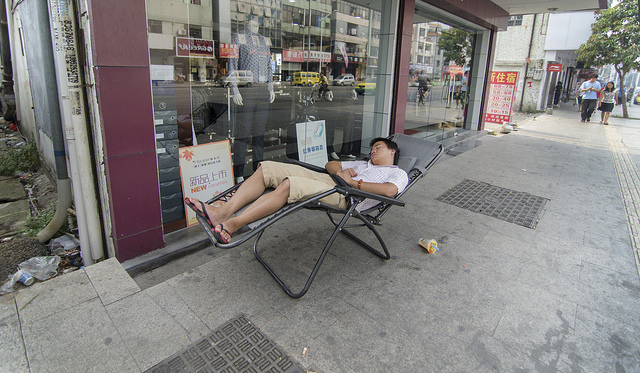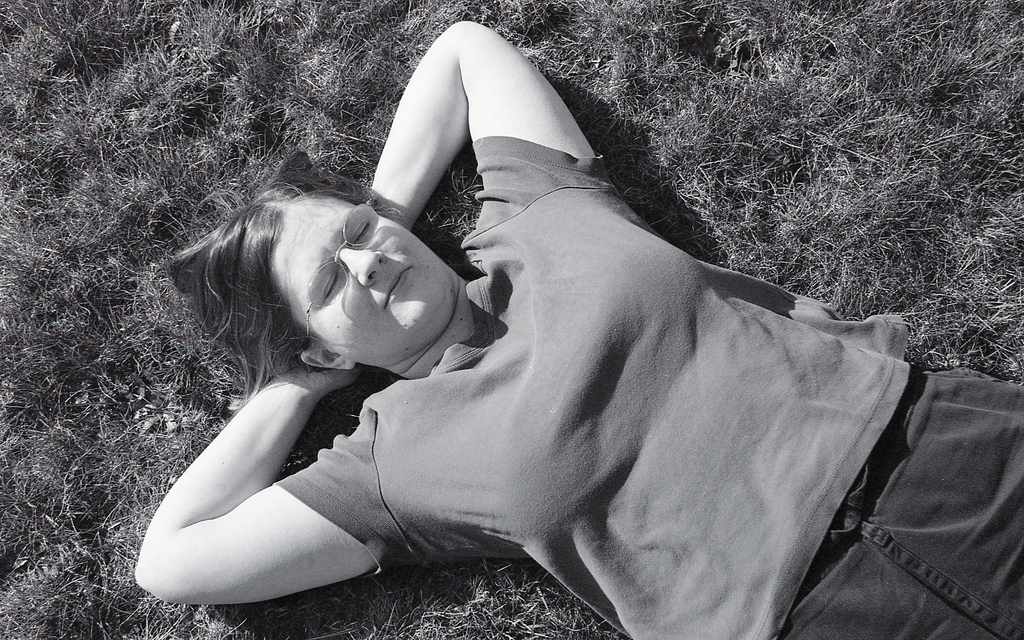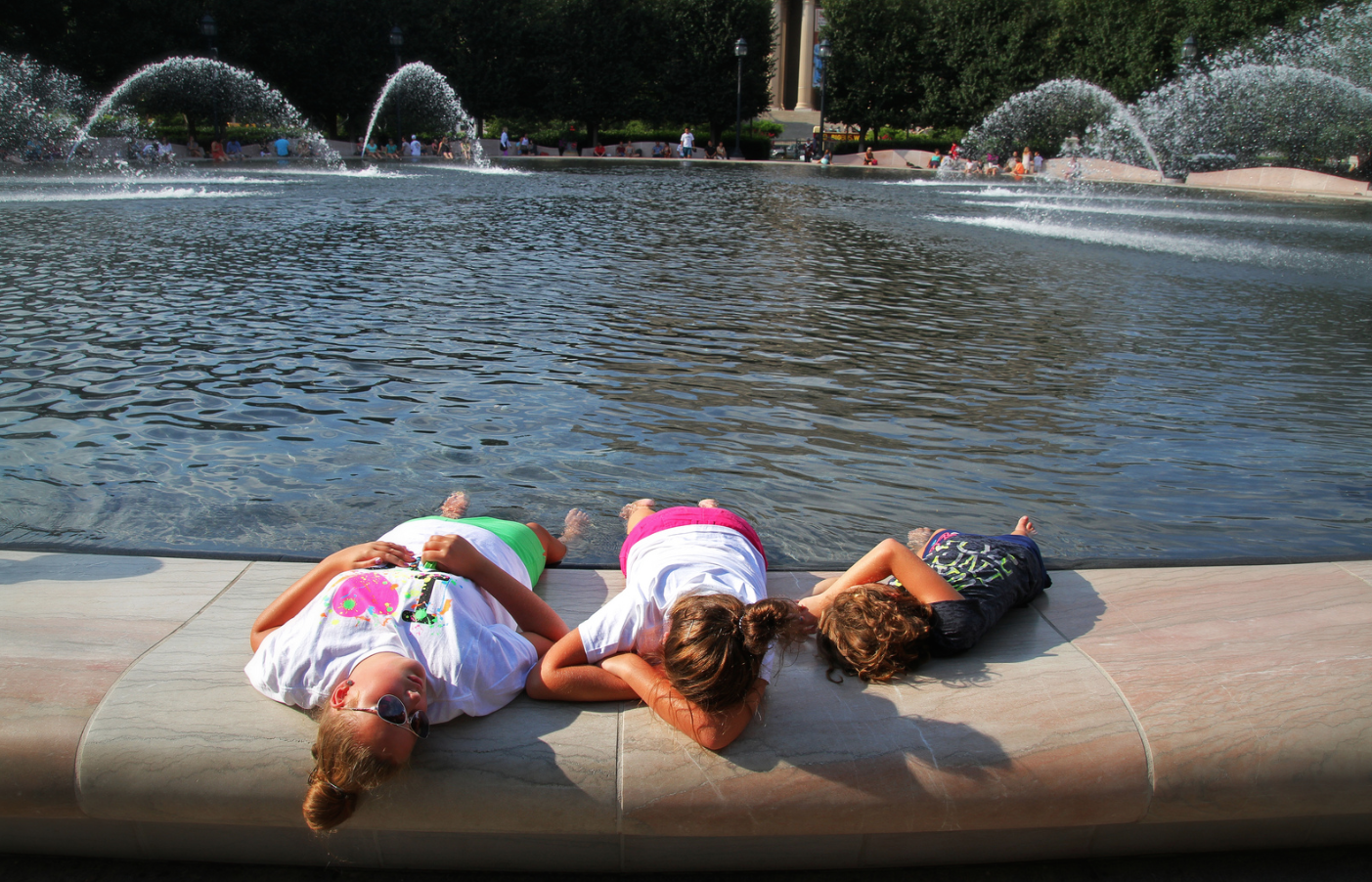Justice Department Says It’s Not Illegal To Sleep Outside Image courtesy of (JY O'Reilly)
In Idaho, some homeless people are challenging a Boise city ordinance against sleeping or camping in public spaces. Last week, lawyers for the DOJ contributed a “statement of interest” [PDF] that supports their contention that, because the city lacks sufficient shelter space, these local laws effectively criminally homelessness in violation of the Eighth Amendment, which limits government’s ability to determine which type of behavior can be treated as criminal.
“[T]he Supreme Court has held that laws that criminalize an individual’s status, rather than specific conduct, are unconstitutional,” explains the DOJ, citing a 1962 SCOTUS ruling in which the court reviewed a California law that had the effect of criminalizing drug addiction, regardless of whether an addict was in possession of illegal drugs. As such, the court considered this in violation of the Eighth Amendment’s prohibition against cruel and unusual punishment.
A 1968 SCOTUS ruling on public drunkenness also weighs on the DOJ’s interpretation of the Boise ordinance. In that case, four justices contended that rules outlawing public drunkenness were okay because they punished the voluntary conduct of being intoxicated in public and not whether the offender might be an alcoholic. Four dissenting justices held that, because the man in this case was an alcoholic, he was powerless to prevent being drunk in public.
The tie in that ruling was broken by a justice who sided with the former, but wrote his own concurrence in which he explained that the Eighth Amendment is violated if sufficient evidence is presented showing that the prohibited conduct was involuntary due to one’s condition.
This justice gave the example of people who are homeless, “not because their disease compels them to be there, but because, drunk or sober, they have no place else to go and no place else to be when they are drinking.” Thus, a homeless person would be breaking the law for being drunk in their “home,” which happens to be a park or a sidewalk.
Since there has been no court consensus, or a SCOTUS ruling that deals specifically with the constitutionality of anti-camping ordinances, the DOJ’s long-held stance has been that you can’t arrest people for sleeping in public if they have nowhere else to sleep — that “criminalizing sleeping in public when no shelter is available violates the Eighth Amendment by criminalizing status.”
Boise officials argued that their ordinance does not criminalize someone’s status, but instead outlaws the conduct of being asleep in public spaces.
The DOJ calls this stance “unpersuasive,” pointing out that a constitutional analysis of an ordinance doesn’t just look at the wording of the law.
“Rather, the practical implications of enforcing the statute’s language are equally important,” explains the DOJ. “Those implications are clear where there is insufficient shelter space to accommodate the homeless population: the conduct of sleeping in a public place is indistinguishable from the status of homelessness.”
The DOJ notes that for homeless people, sleeping in public is “precisely the type of ‘universal and unavoidable’ conduct that is necessary for human survival for homeless individuals who lack access to shelter space… Sleeping is a life-sustaining activity—i.e., it must occur at some time in some place. If a person literally has nowhere else to go, then enforcement of the anti-camping ordinance against that person criminalizes her for being homeless.”
An attorney for the National Law Center on Homelessness & Poverty, which originally filed the lawsuit against Boise, tells the Washington Post that the DOJ’s statement is hugely important for this case and others like it.
He says that people arrested for merely sleeping in public can later face problems when looking for work or to rent an apartment.
“You have to check those [criminal] boxes on the application forms,” the lawyer tells the Post. “And they don’t say ‘were you arrested because you were trying to simply survive on the streets?’ They say ‘if you have an arrest record, we’re not going to rent to you.'”
Want more consumer news? Visit our parent organization, Consumer Reports, for the latest on scams, recalls, and other consumer issues.




